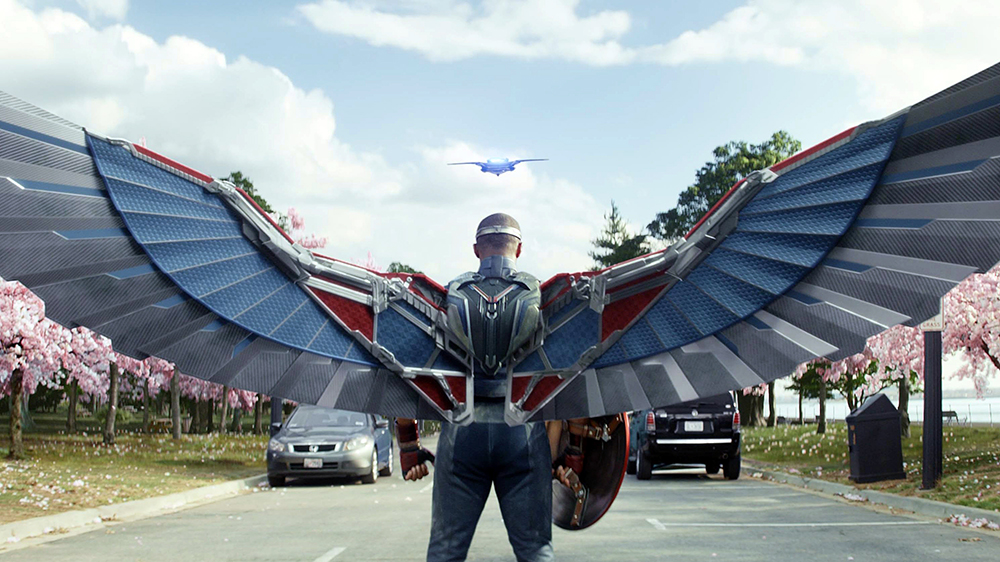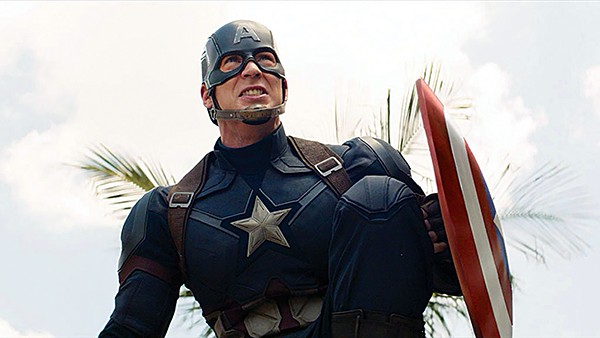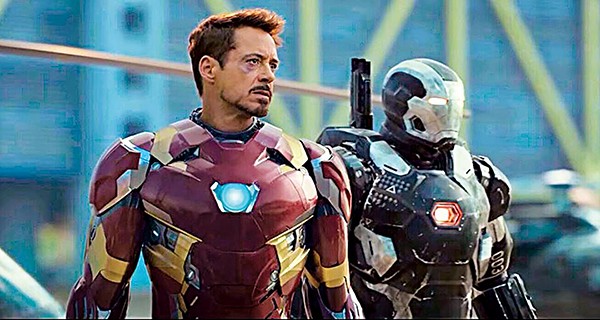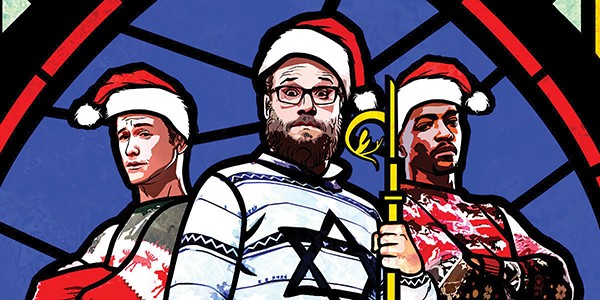While watching Captain America: Brave New World, I had a realization that Disney will be making Marvel movies for the rest of my life.
There have been 35 movies in the Marvel Cinematic Universe (MCU) since Iron Man debuted way back in 2008. This is not exactly a new phenomenon in the hundred-plus years of commercial filmmaking. There have been 52 movies and serials starring Tarzan, beginning with Tarzan of the Apes made by the National Film Corporation of America in 1918, and continuing until 2016’s The Legend of Tarzan.
But MCU pictures are a different beast. Tarzan was a guy who lived in the jungle with Jane (star of 1934’s Tarzan and His Mate), who solved jungle-style problems, which differed from year to year (he fought the Leopard Woman, found the magic fountain, etc.). The MCU presents a unified story, now at more than 60 hours long — at least theoretically. But what happens when you’re telling a unified story, and you get to the part called Endgame, but you want to keep going for, say, 13 or 14 more movies?
The answer that Captain America: Brave New World suggests is, you flail until you fail.
Reader, I try to go into every film with an open mind. If it’s a genre I don’t generally care for, I try to evaluate it on its own terms. Is the film succeeding in what it’s trying to do, even if I don’t like what it’s trying to do? But the MCU is mightily trying my patience. What is Captain America: Brave New World even trying to do? It doesn’t know.
Actually, that’s not true. Executive Producer Kevin Feige is trying to make money for his corporate overlords, and, judging from the $190 million opening weekend, he will likely succeed. But that’s not your problem, or your win. You want to see a well-made, entertaining movie. Captain America: Brave New World is not that.
That’s a shame because the previous Captain America stories had been some of the highlights of MCU. Chris Evans hung up the shield at the end of Avengers: Endgame, when Steve Rogers chose to use the time travel tech that won the Infinity War to go back to the 1940s and romance Peggy Carter. He tapped Sam Wilson, aka The Falcon (aka Anthony Mackie) to be his successor. When we pick up with Sam, it’s after the events of The Falcon and the Winter Soldier miniseries, which aired on Disney+. (I know nothing about that part of the story because it contained my least favorite Marvel character of all time, Bucky Barnes.) He’s down in Mexico, leading Seal Team 6 on a mission to recover a mysterious package from the clutches of the Serpent Society, led by Sidewinder (Giancarlo Esposito). What starts as a simple MacGuffin retrieval immediately goes south. The buyer for the package declined to show up to the rendezvous, and the frustrated Sidewinder is taking out his frustrations on a group of nuns. While Captain America (who, the film reveals, speaks both Spanish and Japanese) saves the clergy, his new sidekick Joaquin Torres (Danny Ramirez), who has taken up the mantle of the Falcon (which is to say, Sam’s old super-suit) retrieves the package.
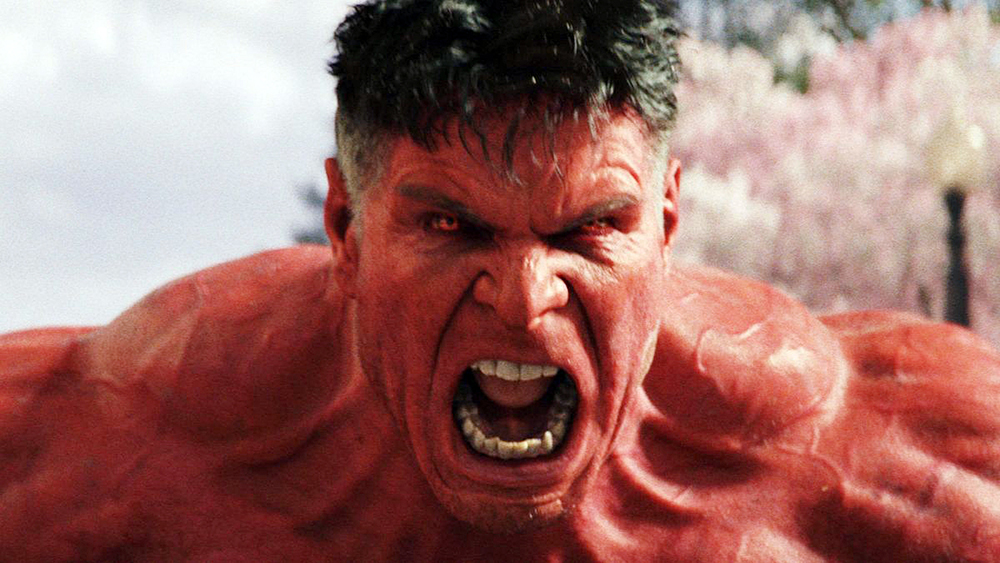
Afterwards, Cap and Falcon are summoned to an audience with the new president, Thaddeus “Thunderbolt” Ross (Harrison Ford). Ross was one of the bad guys in The Incredible Hulk (2008), when he was played by the late William Hurt. But now, he’s shaved his mustache, cleaned up his reputation, and won the election as a reformer. Sam is naturally suspicious of the guy who has always had his own agenda of personal ambition, but now he’s the president, so it’s Captain America’s duty to obey orders. At least that’s how this Cap interprets his role.
President Ross reveals his plan for world peace, or something like it. The giant Celestial monster that tried to emerge from the Earth during the climax of The Eternals ended up as a stone head and hand protruding from the Indian Ocean. It turns out, the package Cap and Falcon were sent to retrieve is a sample taken by the Japanese which proves Celestial Island is extremely rich in adamantium, the fictional super-metal that Wolverine’s claws and skeleton are made of. Unlike vibranium, the other super-metal whose sole source is controlled by Wakanda, the adamantium reserves are up for grabs because the terra nova of Celestial Island belongs to no one. Rather than risk a war, President Ross is trying to negotiate a treaty that will share the new super-resource with the world.
While Ross is making his presentation, an assassination squad led by Sam’s mentor Isaiah Bradley, himself a product of postwar super soldier research, tries to shoot him. Now, Captain America has to a) find out who’s behind the assassination attempt while b) clearing his friend Isaiah’s name and c) preventing a war. Director Julius Onah and his five credited writers have a lot of goals to fulfill, and they attempt it by shuffling Cap and his ever expanding cast of sidekicks through a series of incoherent battles and strained conversations.
The Captain America movies have been showcases for some of the best action sequences the MCU has produced, such as the famous airport confrontation in Civil War. Nothing attempted here even comes close to that standard. I will applaud Brave New World for not attempting the Marvel Third Act, where our heroes fight a large number of faceless adversaries. Instead, Cap faces off against the Red Hulk (who, it must be noted, is not even the primary villain) in D.C.’s cherry blossom orchard. This sounds great on paper, but it looks like absolute ass. Maybe it’s the extensive reported reshoots leading to a rushed final assembly, but this film feels like three or four films haphazardly spliced together. Mackie is game, clearly giving the role his all, but he never stands a chance because the material is hot garbage. I have trouble faulting Onah, as he is the latest in a series of semi-disposable helmers appointed as scapegoats. Brave New World bears the mark of a film made by feuding, status-obsessed middle managers. This is not filmmaking; it’s brand management disguised as entertainment.
Captain America: Brave New World
Now playing
Multiple locations
